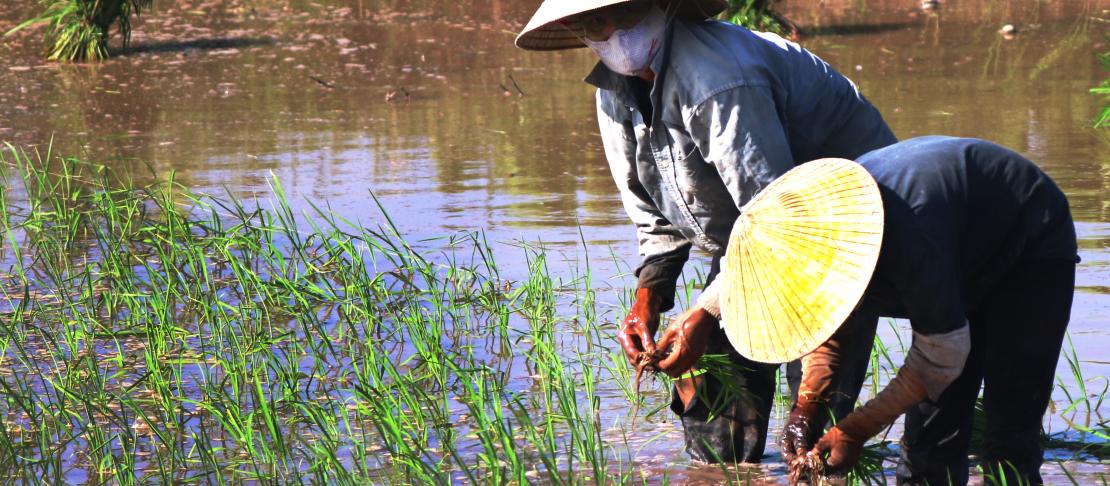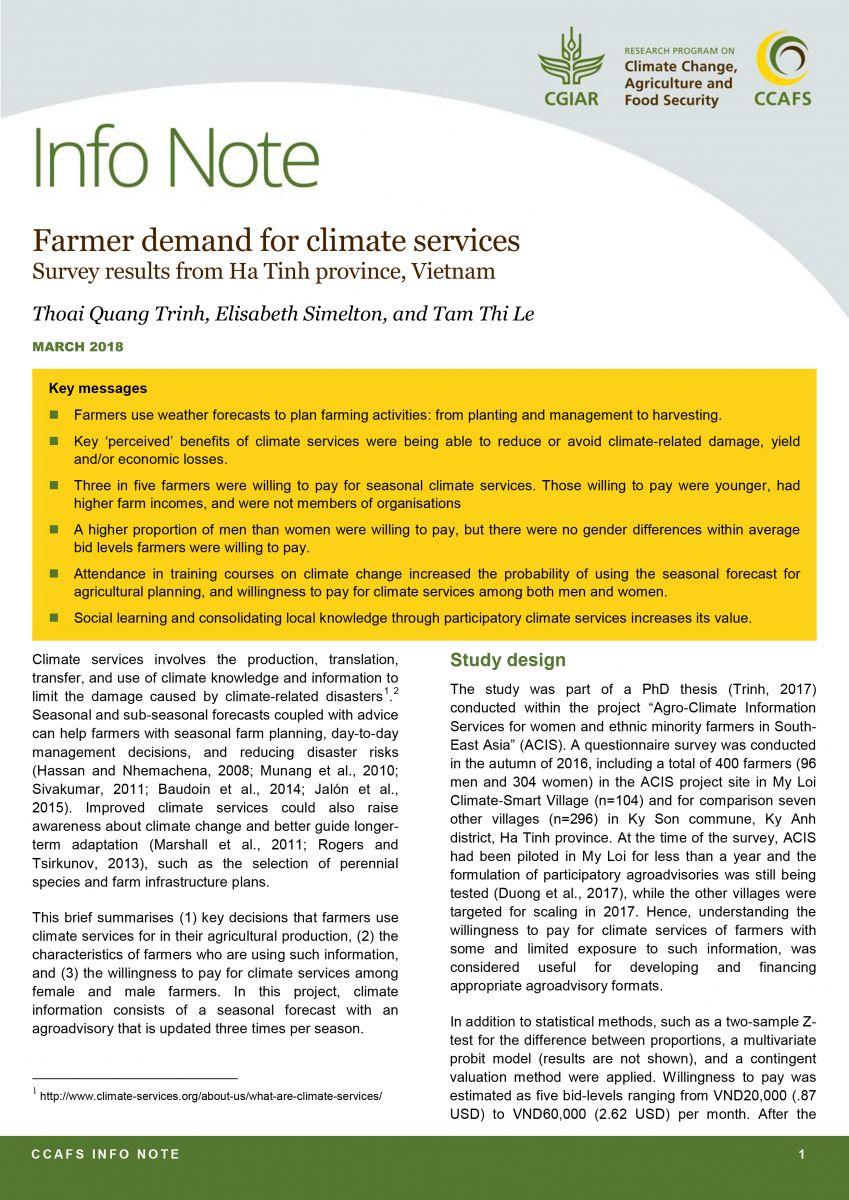Do farmers want to pay for climate services?

Appropriate climate services should enable farmers to make the right management decisions. But are smallholders prepared to pay for such services?
An Info Note published by the CGIAR Research Program on Climate Change, Agriculture and Food Security (CCAFS) studied smallholder farmers’ willingness to pay for climate services. According to the study, climate services such as weather forecasts and agro-advisories contribute significantly to farming activities, from planting to harvesting. In essence, these services help farmers to plan, thereby reducing or avoiding yield loss and other weather-related damages.
A survey revealed that the majority of farmers, especially younger ones, appreciate the benefits of climate services and are now willing to pay for them. This willingness depends on their knowledge and skills to use these services along with the farm income. However, the research indicated that despite their willingness, not everyone has the financial capacity to access them. In general, more men than women were prepared to pay for these services due to their different priorities for their expenses.
The research was conducted as part of a World Agroforestry Centre (ICRAF) Research Fellowship from August 2016 to August 2017. As part of the study, a survey was conducted among 400 farmers (96 men and 304 women) in My Loi Climate-Smart Village and seven other villages of the Ky Son commune, located in Ha Tinh province. The study is a part of the CCAFS project, “Agro-climate Information Services for Women and Ethnic Minority Farmers in Southeast Asia (ACIS)”, implemented by ICRAF and CARE International in Vietnam, Lao PDR, and Cambodia.
Multi-media participatory climate services
An important feature of the study was the participatory nature of the climate services researched. For instance, agro-advisories were generated by integrating local and technical knowledge during a participatory scenario planning forum. Subsequently, a poster was developed for information boards in the commune, and key messages were communicated daily via village “loudspeakers”. To further broaden the reach of the messages, media platforms such as mobile phones and online forums on a free individual subscription basis were also used.
Being participatory, the project led to social learning outcomes wherein farmers learned to reflect on weather forecasts, advise their fellow farmers, and share their knowledge and experience, among others.
Willingness and ability to pay
According to the study, farmers were more reluctant to pay if they considered it a government duty to provide climate services and if they questioned the added value of the services compared to the weather forecasts available for free online.
In total, three out of five farmers, almost 60%, were found willing to pay for seasonal forecasts and agro-advisories. Farmers in My Loi Climate-Smart Village had earlier access to the project's agro-advisories than neighbouring villages in the commune, recognizing the benefits of climate information, which led to a larger share of them willing to pay for such services. Throughout the villages, men were more willing than women, who prioritised other expenses. Willingness to pay was highly influenced by the size of the land the farmers possessed, the income they generated, and the training courses they had attended. Reasons to spend money on climate services included their potential to:
- reduce damage of agricultural production;
- strategize adaptation measures; and
- reduce economic losses.
Among the farmers that were not willing to pay for climate services, the majority stated that their income was insufficient. The study concluded that training sessions on climate-smart agriculture and the participatory scenario planning contributed to a relatively higher number of farmers valuing climate services in My Loi Climate-Smart Village compared to neighbouring villages.
Download the info note: Trinh TQ, Simelton E, Le TT. 2018. Farmer demand for climate services: Survey results from Ha Tinh province, Vietnam. CCAFS Info Note. Wageningen, Netherlands: CGIAR Research Program on Climate Change, Agriculture and Food Security (CCAFS).
Read more:
- News update: Considering gender-differences: The key to effective agro-climatic advisories
- News update: Farmers, agricultural advisors need more detailed, area-specific climate information for climate-smart farming
- In the news: From benefiting to sharing benefits: Duong’s story
Renz Louie Celeridad is the Junior Communications Specialist for the World Agroforestry Centre Philippines. He also works as communications consultant for CCAFS SEA.




